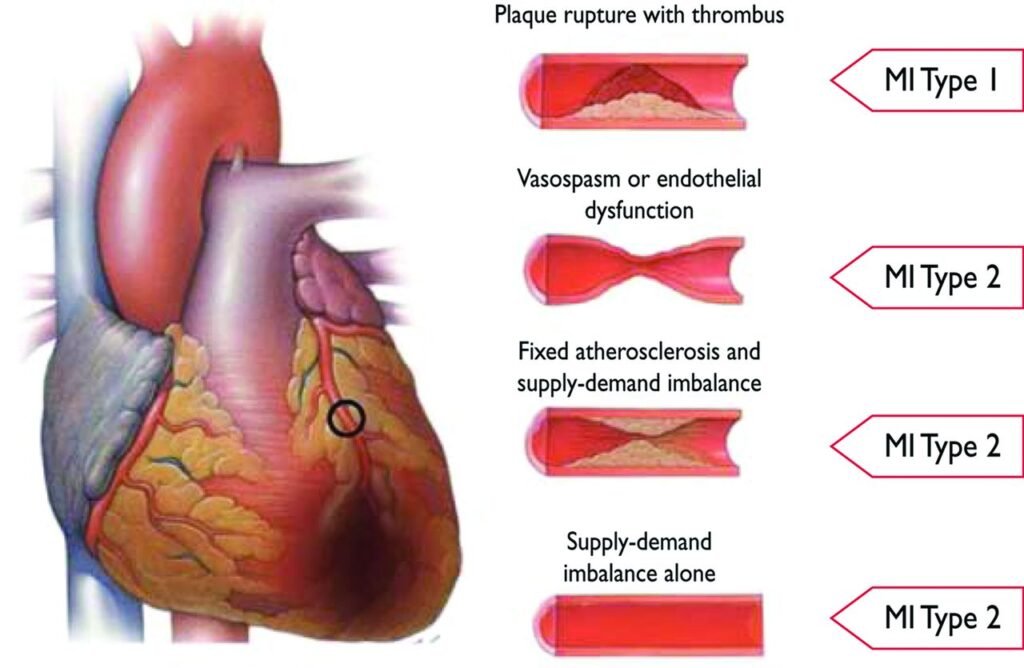Understanding MINS: The Hidden Heart Risks of Orthopedic Surgery
Recent research from the American Heart Association (AHA) has unveiled a concerning trend: a significant proportion of patients undergoing orthopedic surgeries may experience heart damage. This revelation prompts a closer examination of the implications for surgical practices and patient safety.
Related Info 1 in 8 Orthopedic Surgeries Lead to Heart Damage

Understanding the Basics of Heart Damage
When a heart attack occurs, the heart muscle sustains injury, often detectable through elevated levels of a protein called troponin. In clinical settings, healthcare providers commonly assess troponin levels when patients present with chest pain, as a rise in these levels typically indicates muscle damage. The AHA’s findings suggest that this kind of damage can also occur after routine surgeries, often without any obvious symptoms.
The AHA’s Position Statement: A Wake-Up Call
The AHA’s position statement serves as a comprehensive review of numerous studies, all pointing to the alarming conclusion that some patients experience asymptomatic heart injury during non-cardiac surgeries. The evidence indicates that elevated troponin levels following surgery correlate with an increased risk of severe cardiovascular complications. This strong body of evidence has prompted the AHA to alert healthcare providers to this potential risk, emphasizing the importance of awareness and preventive measures.
Defining MINS

The term “Myocardial Injury After Noncardiac Surgery” (MINS) has been coined to describe this phenomenon. Essentially, MINS refers to heart damage occurring in patients who are undergoing surgeries that do not involve the heart. Various factors can contribute to MINS, including:
- Blood Pressure Variations: Fluctuations in blood pressure during surgery can strain the heart.
- Blood Clots: Surgical procedures can increase the risk of clot formation, which can impede blood flow to the heart.
- Heart Rate Abnormalities: Both tachycardia and bradycardia during surgery can lead to cardiac stress.
- Anemia: Low hemoglobin levels can compromise oxygen delivery to the heart.
- Inflammatory Responses: Extensive tissue damage can trigger significant inflammatory responses, affecting heart function.
- Pre-existing Health Issues: Patients with a history of heart disease or other serious health conditions are at greater risk.
Identifying At-Risk Patients
Certain demographics and health conditions elevate the likelihood of MINS. Those at higher risk include:
- Elderly Patients: Age is a significant risk factor, as older adults often have underlying health issues.
- Males: Studies indicate a higher incidence of MINS in male patients compared to females.
- Inactive Individuals: Sedentary lifestyles can contribute to poorer overall health.
- Patients with Chronic Conditions: High blood pressure, diabetes, heart disease, and conditions like peripheral artery disease increase vulnerability to heart damage.
In addition to these factors, emergency surgeries are associated with even higher rates of MINS. However, routine orthopedic surgeries also pose risks. According to the VISION study, orthopedic surgeries have a 12% incidence of MINS, a statistic that should not be overlooked.
The Implications for Surgical Practice
The revelation that one in eight orthopedic surgery patients may suffer heart damage calls for significant changes in surgical protocols. Here are key recommendations for healthcare providers:
- Enhanced Patient Education: Patients with known risk factors must be informed about the possibility of MINS prior to surgery. This discussion should not be relegated to fine print in consent forms; instead, it should be a direct conversation, ensuring patients fully understand the risks involved.
- Exhausting Non-Surgical Options: Before recommending surgery, particularly for at-risk patients, healthcare providers should explore all possible non-surgical alternatives. This approach minimizes unnecessary surgical interventions and their associated risks.
- Adopting Minimally Invasive Techniques: As MINS is linked to the extent of tissue damage during surgery, opting for less invasive procedures can reduce the risk of heart injury.
- Routine Troponin Monitoring: Implementing routine testing for troponin levels before and after orthopedic surgeries can aid in early detection of MINS, allowing for prompt intervention if necessary.
- Anesthesia Protocols: Anesthesiologists should carefully monitor patient perfusion during surgery to mitigate potential heart stress.

Conclusion: A Call to Action
The findings regarding MINS present a critical call to action for both healthcare providers and patients. Understanding that one in eight orthopedic surgery patients may experience heart damage highlights the need for increased vigilance in surgical planning and patient care. If you are considering orthopedic surgery, it is essential to have an open discussion with your healthcare provider about MINS and how it may impact your treatment plan.
Read More informative Articles Strong Thighs as Guardians Against Arthritis, Brain and Heart Disease
By prioritizing patient education, exploring non-surgical options, and implementing rigorous monitoring practices, the medical community can work toward minimizing the risks associated with orthopedic surgeries, ultimately improving patient outcomes and safety